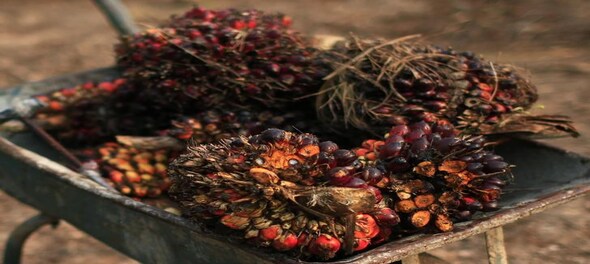
As temperatures continue to rise and climate change results in increasingly unpredictable weather patterns, India finds itself grappling with the harsh realities of heatwaves, droughts, and threats to food security. Prime Minister Narendra Modi has taken action, addressing these concerns by urging state governments to adopt Heat Action Plans at state, district and city levels to mitigate the far-reaching consequences of these extreme weather conditions.
Studies have painted a grim picture, suggesting that stronger and earlier heatwaves, combined with erratic rainfall patterns, could significantly disrupt India’s agricultural output and lead to shortages. An alarming IMF report highlights the potential for climate change to reduce major crop yields by up to 25 percent. The implications of such an impact on India’s agricultural sector—which employs half the country's population and contributes 18 percent of its economic output—would be immense.
Growing need for sustainable food security
As the nation with the world's largest population, India faces a daunting task to address food security, nutrition, and sustainable food systems. However, with vast arable lands and abundant natural resources, India also has the potential to not only meet its own food needs but to contribute significantly to global food security – if the threat of extreme weather conditions can be overcome.
As the current G20 president, India champions “Green Growth” as a priority area, emphasising the importance of sustainable development, climate resilience, and meeting the ever-growing demand for food in an environmentally responsible manner. This leadership position offers India a unique opportunity to pave the way for sustainable food security on a global scale. As the stakes continue to rise, it is crucial for India to seize the moment and lead the charge towards a greener, more sustainable future.
Sustaining self-reliance with sustainable food systems
The rapid expansion of India’s FMCG sector, expected to grow by 20 percent this year and reach US$120 billion by 2025, has led to a surge in demand for palm oil. Palm oil now accounts for about 40 percent of India’s edible oil consumption, totalling around 9 million tonnes per year. It has become a staple in Indian households, and the cooking oil of choice for many local entrepreneurs as well.
As the world's second-largest consumer and largest importer of palm oil, India therefore plays a critical role in promoting sustainable practices within the industry.
Palm oil is in fact a highly efficient oil-bearing crop, accounting for 35.5 percent of global vegetable oil output while using only 0.6 percent of the world's agricultural land. As we confront the pressing challenges of climate change and its impact on food security, a comprehensive approach to addressing sustainable sourcing of palm oil is crucial.
Encouragingly, India has already taken significant strides in promoting palm oil production through initiatives like the NMEO-OP, which seeks to make India self-reliant by cultivating oil palm domestically to reduce the country’s dependence on palm oil imports. The scheme has recognised the potential risks that the sector might face related to water, long gestation periods and the impacts of monoculture plantations on the ecosystem. It is encouraging to note that the NMEO-OP mission has put in measures to incentivise efficient water usage, promote intercropping and define a pricing mechanism to mitigate some of the sustainability risks.
Recognising the potential for India to drive the demand for sustainable palm oil, the Roundtable on Sustainable Palm Oil (RSPO) is working with its members and stakeholders in the country to lead the change toward a greener future. Through a global multi stakeholder partnership, the RSPO defines worldwide standards for sustainable production and use, together with national interpretations to account for local variations in production practice. This helps to create a common understanding of sustainability across the palm oil sector.
Furthermore, the RSPO is actively supporting smallholder farmers in transitioning to sustainable practices, connecting them with markets, and ultimately improving their livelihoods. Working with industry associations, importers, traders, consumer brands and civil society, the RSPO is supporting smallholder farmers in places like Andhra Pradesh to strengthen demand for sustainably-sourced palm products in the Indian market.
Way Forward
As the demand for vegetable oils grows apace, it is crucial for all stakeholders to prioritise sustainable palm oil practices, embrace organisations like the RSPO, and align their efforts to tackle climate change and enhance food security. The commitment from members and stakeholders of the RSPO to ensure that all palm oil produced and consumed within India is sustainable will pave the path towards a sustainable palm oil sector globally.
By placing sustainable palm oil at the core of its agricultural transformation, India can help pave the way globally for a greener, more resilient future that ensures food security for generations to come.
— The author, Joseph D’Cruz, is CEO of the Roundtable on Sustainable Palm Oil (RSPO). The views expressed are personal.
(Edited by : C H Unnikrishnan)
Check out our in-depth Market Coverage, Business News & get real-time Stock Market Updates on CNBC-TV18. Also, Watch our channels CNBC-TV18, CNBC Awaaz and CNBC Bajar Live on-the-go!


BJP is planning to ban RSS, says Shiv Sena (UBT) chief Uddhav Thackeray
May 18, 2024 8:01 PM
Punjab Lok Sabha elections: Complete list of Congress candidates
May 18, 2024 4:08 PM
Punjab Lok Sabha elections: Check full list of AAP candidates and constituencies
May 18, 2024 12:59 PM
PM Modi, Rahul Gandhi election rallies in Delhi today: Here are the routes to avoid
May 18, 2024 11:28 AM

